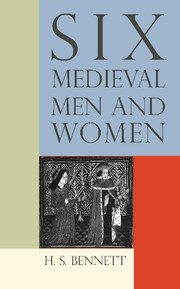Summary
By a malign stroke of fortune one of the most famous of English captains in the French wars of the first half of the fifteenth century was transformed by Shakespeare's pen from Fastolf to Falstaff, and as such came to be known as one of his greatest comic characters—a liar, a braggart, a ‘bag of guts’, a wit, a friend of rogues and ne'er-do-wells; in short—everything which Fastolf was not. How this change or confusion came about need not concern us here: our interest is to follow the fortunes of a well-to-do professional soldier of the fifteenth century, who in the course of a long life acquired great riches and reputation.
The Fastolfs were a well-known Norfolk family of many branches, one of which settled at Caister, near Yarmouth, and there John Fastolf was born about 1378. His father had inherited Caister and other manors, and had also bought much property in Norfolk, so that the young Fastolf spent the earliest years of his life in comfortable surroundings, and then probably found himself, as was the custom of the day, at some seven or eight years of age sent to live in the household of a friend or acquaintance, where as a page he would be called upon to perform minor services for his lord and lady. As he waited on them in hall and in bower many important and many
trivial details of everyday life and manners would be borne in on him. With good fortune he would learn to read, and even to write; to speak correctly; to play upon some instrument; to dance; to perform simple services with horse and hound.
At the age of twelve or thirteen more serious things would begin to occupy the boy's time. Instead of spending many hours in the lady's bower he would be mainly engaged in his lord's affairs, such as the ‘manage’ of the horse, the complicated ritual of the hunt, the care of hounds and of hawks and how to look after his master's armour and weapons. When his lord rode out he would attend him and would await anxiously while the outcome of the battle or the tourney was uncertain.
- Type
- Chapter
- Information
- Six Medieval Men and Women , pp. 30 - 68Publisher: Cambridge University PressPrint publication year: 2013



